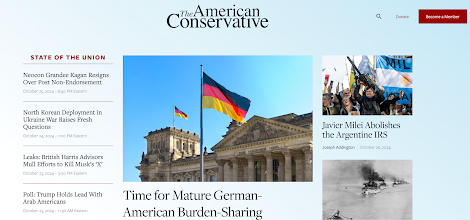When it comes to U.S. foreign policy, anti-war opinions are normally hard to find compared to pro-war stories in mainstream media. However, websites like Antiwar.com and The American Conservative show a much more diverse conversation happening outside of traditional news sources. These sites push for avoiding military conflicts and protecting personal freedoms. This raises important questions about why we don’t hear more anti-war views in a society that often leans towards supporting military conflicts.
Antiwar.com is pretty straightforward in its mission. It aims to limit U.S. military intervention worldwide. By providing a space for people that challenge military entanglement, it brings a range of perspectives into the national conversation. The American Conservative also questions unchecked government power and promotes personal rights. Both sites reflect lively debates about U.S. military policies but often get overlooked in mainstream news, leaving us to wonder why these perspectives stay under the radar.
A big part of the problem is that the government heavily influences public opinion. In a time where military action is commonly framed as essential to national security, pro-peace perspectives are usually left to the side. Government interests in keeping up a pro-war narrative are powerful, and many media outlets support this. This makes it challenging for platforms like Antiwar.com and The American Conservative to gain visibility since their viewpoints often challenge that of the government.
There is also the common belief that the U.S. is naturally pro-war, which complicates the topic. Many Americans view military interventions as justified, reinforcing support for these actions and shaping debates around what’s best for national security. This leaves anti-war opinions looking “unpatriotic” or “too idealistic.” Keeping anti-war voices out of the spotlight allows public perception to mirror the government’s narrative.
Ultimately, the lack of visibility for anti-war sites reflects a complicated controversy of political, economic, and social forces. By giving platforms like Antiwar.com and The American Conservative more attention, we would be able to see a wider variety of opinions in foreign policy discussions, which are essential for a well-rounded view on how the U.S. approaches global issues.


.jpeg)
.png)
